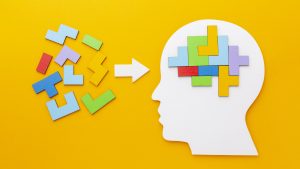What is ASD (Autism Spectrum Disorder)?
ASD is a neurobiological developmental disorder that affects communication, behavior, and social interaction.
It is called a “spectrum” because it includes a wide range of symptoms, abilities, and levels of disability. The difficulties experienced by individuals with autism can significantly impact their quality of life and that of their families.
Early intervention, including specialized therapies and educational support, is crucial to help children develop adaptive skills and improve daily functioning.
Main Characteristics of ASD
-
Difficulties in communication and social interaction: Individuals with ASD may have trouble understanding and using verbal and non-verbal language, affecting their ability to interact with others. They may struggle to maintain conversations, understand jokes or metaphors, and interpret social cues.
-
Repetitive behaviors and restricted interests: Repetitive movements (like rocking or hand-flapping) and intense focus on specific interests are common. They may resist changes in daily routines.
-
Cognitive and sensory diversity: Cognitive abilities vary widely, from intellectual disabilities to above-average intelligence. Individuals may also be hypersensitive or hyposensitive to sensory stimuli such as sounds, lights, textures, or tastes.
Challenges Commonly Faced by Children with ASD
1. Communication Difficulties
-
Verbal language: Some children may have delayed speech development or may not develop verbal language. Those who speak may struggle with conversation, understanding questions, or expressing thoughts and emotions.
-
Non-verbal language: Difficulty using gestures, facial expressions, and eye contact, making social communication challenging.
2. Limited Social Interaction
-
Social relationships: Difficulty forming and maintaining friendships; may prefer solitary play.
-
Social understanding: Problems grasping social rules, which can lead to misunderstandings or isolation.
-
Empathy: Difficulty interpreting and responding to others’ emotions, sometimes appearing indifferent.
3. Repetitive Behaviors and Rigidity
-
Routines and rituals: Need for strict routines; changes can cause significant distress.
-
Repetitive movements: Rocking, hand-flapping, or spinning objects.
-
Restricted interests: Intense focus on specific topics or activities.
4. Sensory Sensitivity
-
Hypersensitivity: Overreaction to bright lights, loud noises, textures, or tastes.
-
Hyposensitivity: Seeking strong sensory input or showing little reaction to stimuli others find uncomfortable, such as pain or cold.
5. Behavioral Challenges
-
Emotional outbursts: Tantrums or crises due to frustration, anxiety, or overstimulation.
-
Aggression or self-harm: Some may display aggressive behaviors toward themselves or others.
6. Learning Difficulties
-
Variable cognitive development: Some children have learning disabilities, while others may have advanced skills in certain areas but challenges in others.
-
Attention and concentration: Difficulty staying focused, following instructions, or completing tasks.
7. Feeding Issues
-
Food selectivity: Extreme pickiness that can lead to a restricted diet and nutritional deficiencies.
-
Sensitivity to food textures: Certain textures may make foods unacceptable.
8. Sleep Problems
-
Insomnia or frequent awakenings: Trouble falling asleep or maintaining sleep.
-
Early waking: Waking very early and being unable to return to sleep.
Evaluation and Diagnosis of ASD
 Diagnosis is based on observing the behavior and development of the child or adult. It may involve assessments by doctors, psychologists, and specialists like speech-language pathologists (SLPs).
Diagnosis is based on observing the behavior and development of the child or adult. It may involve assessments by doctors, psychologists, and specialists like speech-language pathologists (SLPs).
Early diagnosis and therapy are essential to provide support and tools for daily life, helping individuals achieve as much independence as possible.
Treatment for ASD
Treatment is multidisciplinary, including behavioral therapies, educational interventions, and in some cases, medication to manage specific symptoms.
The level of support needed varies: some individuals require significant daily assistance, while others can lead independent lives with minimal difficulties.
📞 For more information or consultation: +34 672 115 083 / 951 765 549